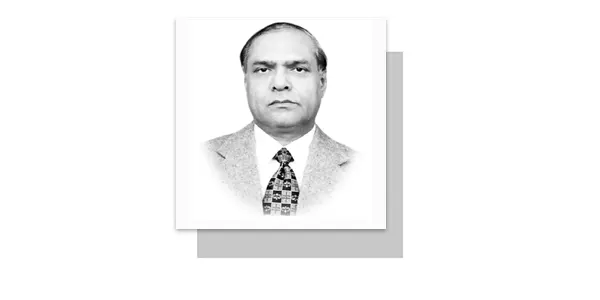WHAT we are witnessing today is the biggest challenge we ever faced in our history since independence in 1947. In fact the challenge is not just one but many—our dwindling and sinking economy being at the fore front of other multiple challenges followed by political, social and governance issues. If power is concentrated in the hands of a few individuals or groups, it can lead to corruption and abuse of power. This can lead to social unrest and ultimately undermine the unity of the nation. Today we have all the symptoms, unfortunately, very much present in our country, putting our unity in jeopardy.
One of the primary benefits of national unity is that it helps to prevent conflict within society. When people feel connected to their country and its culture, they are less likely to engage in violence or other forms of social unrest. The greatest force which bonds them together is language, religion, culture and of course the will to stay together as one nation and one entity. History is a witness that countries have been made and divided on the basis of these important factors.
While deliberating on the issue of Social Contract Theory, Hobbs, Locke and Rousseau all agreed that the element of unity is the fundamental basis on which the relations between people and rulers rests. What degree of unity is appropriate for a political entity, a city, a state, a federation? This was a question on which Aristotle took issue with his teacher, Plato, whose views are represented by Socrates in The Republic. For Aristotle, Plato aspired to an excess of unity. He expected the best city to exhibit a degree of coherence and cohesion analogous to that found in a human person. In the one individual there might be found a plurality of drives and interests such as those of the physical body, the passionate spirit and the rational mind, but these could and should be harmonised under the rule of reason. Such a model of unity was applied to the city with its different elements that could also be unified if subject to rule by a knowledgeable authority.
Aristotle rejected Plato’s vision of unity, believing it would undermine the political essence of combining diverse individuals in a common pursuit of a decent life. His critique centres on two key points: the importance of plurality and the rejection of a singular authority. No individual can possess complete knowledge of what benefits the entire community. The idea of a “philosopher king” is a fantasy. While competent professionals exist, no one can fully understand the needs of every person or the community as a whole. Individuals are best suited to determine their own path to fulfilment. Citizens, though diverse, are equal in their right to self-rule and participation in governing the city. Aristotle’s view emphasizes that political unity should come from cooperation among equal individuals, rather than from the rule of a singular authority who dictates what is good for all.
Aristotle that that Plato’s vision of unity was excessive, but many today might also view Aristotle’s proposals as too demanding. He argued that political entities must agree on certain principles: a shared understanding of what is good, just, and law-abiding, achieved through reasoned speech, along with training citizens to pursue that fulfilment. While modern politics doesn’t seek consensus on ultimate human fulfilment, it does focus on managing conflicts through negotiation, conciliation, and legal resolutions. Today’s politics prioritizes rights over the concept of the “good,” with civil, political, economic, and cultural rights reflecting a minimum agreement on human well-being. Lawmakers no longer see their role as making people morally good but instead focus on eliminating practices and conditions harmful to human welfare. This shift emphasizes protecting rights and ensuring the well-being of society, rather than pursuing an ultimate moral or ethical unity.
For a viable political entity some degree of unity is important. That we are in agreement about how to go about managing conflict, that we come to a shared view on what is the minimum that must be assured to everyone, and that we can defend that minimum in terms of the conditions for well-being and ultimately flourishing, are the modern versions of what Aristotle spelled out in his Politics. We have legislatures, such as Parliament, in which the debates about what is needed are conducted. We agree that this is the way to manage our conflicts, even if we are in dispute about the preferred outcomes. The ongoing disputes should not surprise us: they are the inevitable consequence of our plurality and diversity, the fact that our interests are varied and not necessarily compatible, and our perspectives and ambitions are similarly pluriform. Disagreement persists even within the framework of agreement about how we will manage our conflicts.
Some authors analyse the current situation by relying on the notion of populism. This is not a helpful term for analysis. But in those phenomena that are labelled as populism we see the same trends emerging in different contexts: the first trend is to deny diversity and plurality as values in order to affirm unity; the second trend is to assert the singularity of ideology and authority as the guarantors of unity. In the face of the pressure brought to bear by these trends, it is important that people who have enjoyed the benefits of life in freedom should remain committed to principles that Aristotle formulated as fundamental for the political common good: we are many, different but equal; we all have something to say, to contribute to the pursuit of the good life, and that would be jeopardised by the assertion of a single source of knowledge about what is good and worth pursuing.
—The writer is Former Civil Servant and Consultant (ILO) & International Organisation for Migration.










